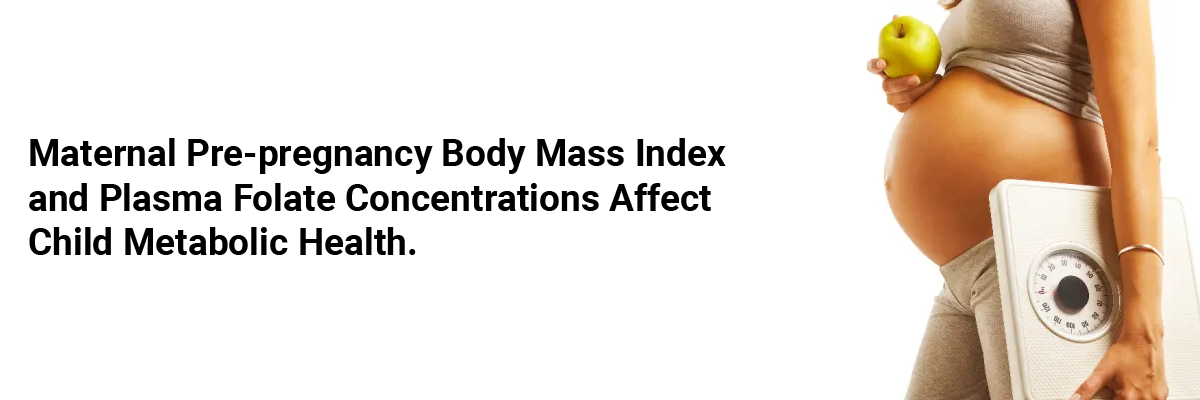
 IJCP Editorial Team
IJCP Editorial Team
Maternal Pre-pregnancy Body Mass Index and Plasma Folate Concentrations Affect Child Metabolic Health.
Evidence has linked maternal pre-pregnancy obesity with low folate concentrations and child overweight or obesity (OWO). However, the role of maternal folate concentrations, alone or in combination with maternal OWO, in child metabolic health remains unclear.
A study by Wang G. et al. tested the hypotheses that maternal folate concentrations can significantly affect child metabolic health and that sufficient maternal folate concentrations can mitigate pre-pregnancy obesity-induced child metabolic risk.
The study included 1517 mother-child dyads and followed them up prospectively up to 9 years. It looked for Child's body mass index z score, OWO, and metabolic biomarkers (leptin, insulin, and adiponectin).
The study observed that the mean age was 28.6 (6.5) years for mothers and 6.2 years for children. It found an L-shaped association between maternal folate concentrations and child OWO, with the risk for OWO higher among those in the lowest quartile (Q1) than with those in Q2 through Q4, with an odds ratio of 1.45.
Children of obese mothers with low folate concentrations had the highest risk for child OWO compared with children of normal-weight mothers with folate concentrations in Q2 through Q4 after considering multiple covariables. It also found the risk for OWO was associated with a 43% reduction among children of obese mothers if their mothers had folate concentrations in Q2 through Q4 compared with Q1. These patterns were similar for child metabolic biomarkers.
Thus there exists an L-shaped association between maternal plasma folate concentrations and child OWO and the usefulness of sufficient folate concentrations, particularly among obese mothers. This study indicates that the threshold concentration exceeds the clinical definition of folate deficiency, which is primarily based on the hematological effect of folate.
Thus there exists an urgent need to establish optimal rather than minimal folate concentrations for preventing adverse metabolic outcomes in the offspring.
Epub 2016 Aug 1. PMID: 27295011; PMCID: PMC5147730.

IJCP Editorial Team
Comprising seasoned professionals and experts from the medical field, the IJCP editorial team is dedicated to delivering timely and accurate content and thriving to provide attention-grabbing information for the readers. What sets them apart are their diverse expertise, spanning academia, research, and clinical practice, and their dedication to upholding the highest standards of quality and integrity. With a wealth of experience and a commitment to excellence, the IJCP editorial team strives to provide valuable perspectives, the latest trends, and in-depth analyses across various medical domains, all in a way that keeps you interested and engaged.




















Please login to comment on this article